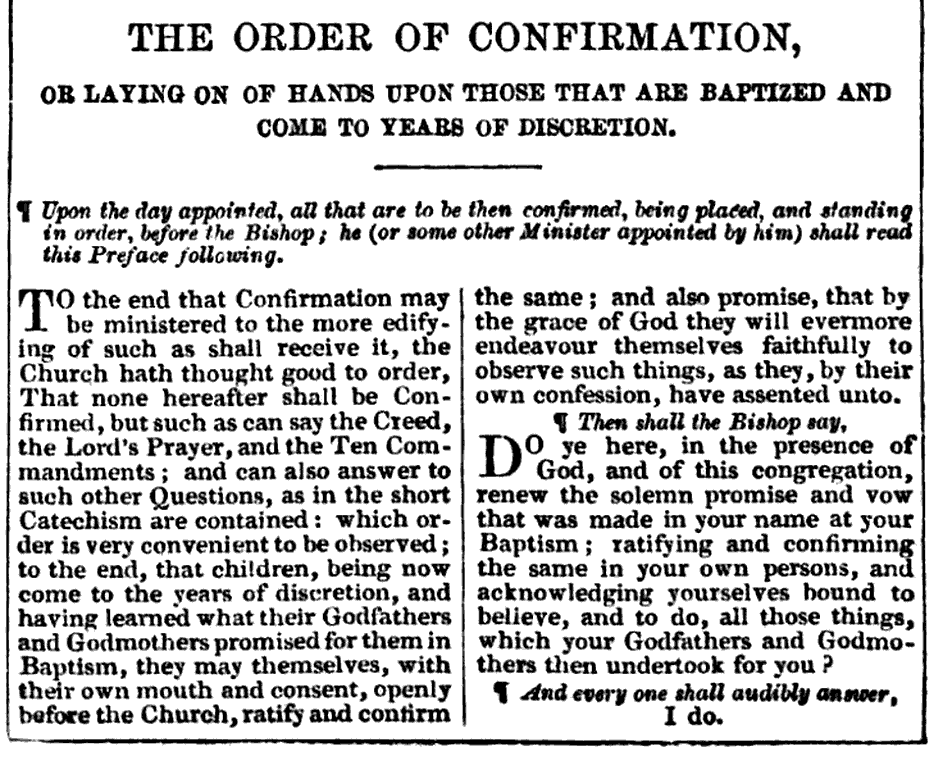Why do youths go through confirmation? What is it? What is it for?
Confirmation forms part of the Christian life for those who grow up within the Anglican Church. Although it is not something the Bible prescribes, it has both ancient roots and ongoing values within our community. Vincent Murphy elaborates more on this.
Confirmation comes at the end of a process of instruction and preparation which our Prayer Book explains is, “to the end, that children, being now come to the years of discretion, and having learned what their Godfathers and Godmothers promised for them in Baptism, they may themselves, with their own mouth and consent, openly before the Church, ratify and confirm the same; and also promise, that by the grace of God they will evermore endeavour themselves faithfully to observe such things, as they, by their own confession, have assented unto.”
As Anglicans, we believe that the children of believers are rightly baptised (Article 27 of the 39 Articles), according to the promise of the Gospel. At that point, the promises of baptism are made in their name, by their parents and their godparents. Yet, there will come a time when the children are old enough to understand and make the same promises themselves. This is what we call confirmation.
Preparation for confirmation typically consists of a period of instruction, participation in the life of the church, and clear teaching regarding the Gospel and what it means to trust in Christ. Those who are ready and have indeed come to trust in Christ for Salvation, are then invited to the Confirmation Service.
Confirmation itself has three main parts:
- Those to be confirmed confess their faith in Christ before the bishop and the congregation.
- They make, in their own names, the same promises that were made at their baptism.
- The bishop (as chief teaching minister, representing the whole diocese), prays for them that God will cause their faith to be both sure and increasing, until the return of Christ. He does this by laying his hand upon the head of each (an ancient form of prayer), saying, “Defend, O Lord, this your Child N with your heavenly grace, that he/she may continue yours for ever; and daily increase in your Holy Spirit more and more, until he/she comes into your everlasting kingdom. Amen.”
Following confirmation, it is very important that those who have been confirmed realise that confirmation is not the end of their instruction and growth in Christ. Having laid the foundations in preparation for confirmation, the rest of their lives is to be spent continuing to grow firmer in faith, and deeper in their knowledge and love of God, “daily increasing in the Holy Spirit more and more”, just as the bishop prays.
A prayer for those who have been confirmed:
Almighty and everliving God, who causes us both to will and to do those things which are good and acceptable to Your divine Majesty; we humbly pray to You for all those who have been confirmed in the faith of Christ. May Your fatherly hand be always over them, Your Holy Spirit ever with them; and may You so lead them in the knowledge and obedience to Your word, that in the end they may obtain everlasting life, through our Lord Jesus Christ, who with You and the Holy Spirit lives and reigns, one God, now and forever. Amen. (Prayer based on the Book of Common Prayer, 1662)

